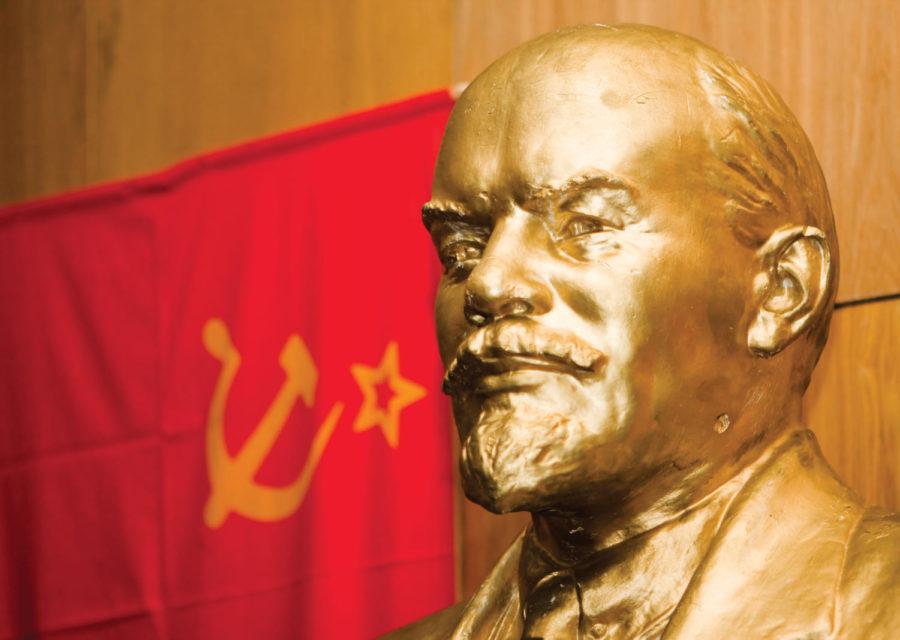Bruning: The Final -isms: Socialism and communism
Vladimir Iljich Lenin
September 14, 2011
Now we get to delve into the -isms that all
seem to involve bearded men … socialism and
communism.
Now I’ve always been of the opinion that
socialism and communism are great ideas in theory, just not in
practice. Luckily, this column is about political theories and not
the implementation of them. Now, I didn’t vote for Obama in the
last election by any means, but I still would by no means classify
him as a socialist. In fact, he has spoken of his desire for a free
market, something at which socialists would
cringe. Socialism is a classless society in which
resources are controlled either through the state or
cooperatively. A free market is exactly the opposite, a market that
isn’t controlled. Granted, things like bailouts for companies don’t
exactly promote a free market, but it’s still a far cry from being
controlled by the state.
Theorists whom many are familiar with include
Marx, Engels and Lenin, as well as Robert Owen, who preached of a
utopian socialism. Socialism is actually a precursor to
communism. Socialism is a society in which the proletariat (or the
working class) bring down the dictatorship of the capitalists (or
bourgeoisie) and replace it with their own rule in which production
and resources are realized through socialization. It is only after
the realization of socialization and revolution (preferably
violent) that communism can be achieved in which society exists in
a classless and stateless state. Some countries such
as China, the Soviet Union, Yugoslavia and Hungary have established
semi-socialist states in which production is under the control of
the government. However, despite whatever label they choose to put
on their government, no truly communist (classless and stateless)
state has been achieved.
Socialists may sometimes argue that their
theory seeks to fully utilize our labor and technology to make
society as efficient as possible without the concentration of
wealth or power. Welfare is something that stems from this, as
socialism does tend to strive to provide for the most needy. While
people go about doing this differently, I would argue that this is
more out of compassion than political theory. It stresses
cooperation rather than competition, providing for the neediest,
and criticizes private property. Because the
government has control of production, it is able to take whatever
profits it received and (theoretically) divide them among the
people.
Socialism and communism are two –isms that are
especially prone to misuse because they are difficult to
understand, especially in a country where they aren’t in
practice. This is a brief overview, and people from Albert Einstein
to Che Guevara have voiced their opinion on the subject. Each
theorist has his own take on it because it is purely that,
theory. The problem comes when people use the word for the pure
sake of name-calling. The theory itself isn’t really that
repulsive. I mean, the end goal is a utopia. Sounds fair enough to
me. The problem is in the implementation and, in my personal
opinion, the need for human beings to have personal motivation not
just motivation for the public good.
So there we have it. A brief overview of the
–isms most commonly distorted, maimed and beaten over the head with
a stick by both Democrats and Republicans alike: conservatism,
liberalism, socialism and communism. Instead of throwing around
words we don’t understand and condoning people for their political
theories, take a minute to truly look at the politician and
criticize the specific policies you don’t agree with instead of the
general theory. Each has its positives and its negatives, and it’s
up to us as a supposedly informed public to get past the petty
name-calling and actually look at the content.







